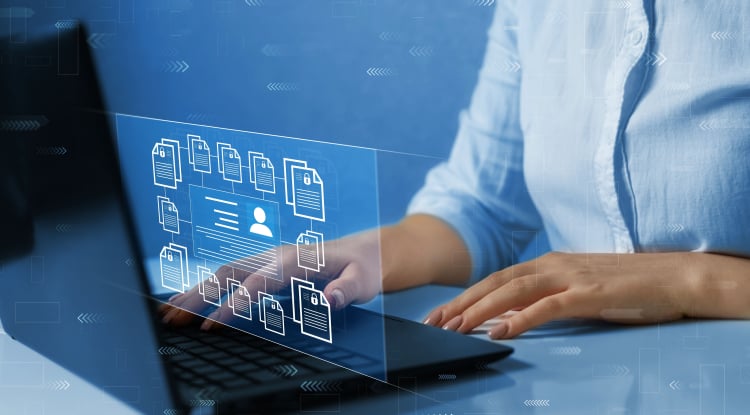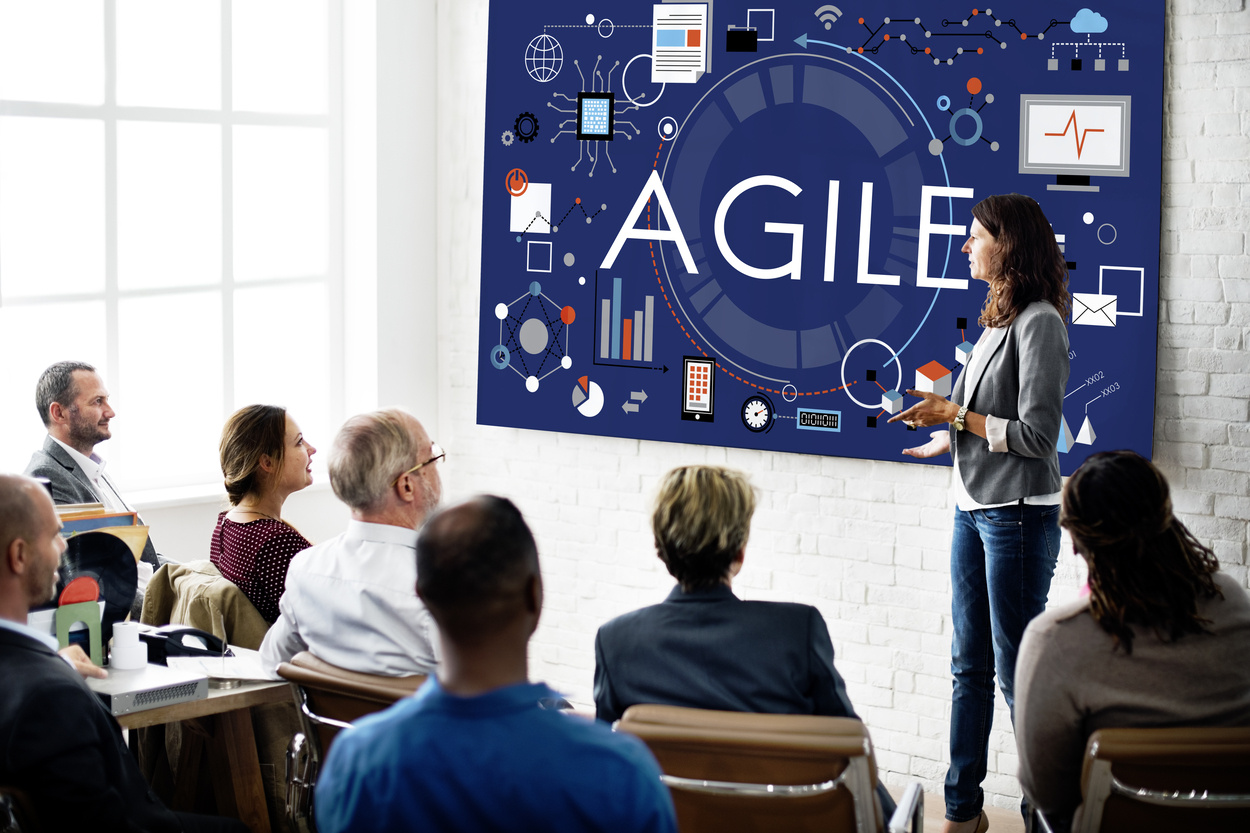- HCM
Human Resources (HR) lifecycle management is gaining importance in today's dynamic corporate environment as a means of maintaining a happy and productive staff. Human resources (HR) procedures are undergoing a sea change as a result of the development of AI. In order to simplify processes, increase productivity, and create a more inclusive workplace, human resource managers are increasingly turning to artificial intelligence (AI) for help with everything from acquiring top talent to nurturing employee growth and managing retirement. In short, AI has the potential to manage everything from hire to retire.
In this article, we'll discuss how artificial intelligence (AI) may be used at various points in HR lifecycle management to improve HR operations.
Role of AI in the Hiring Procedure
Hiring is the first phase of the hire to retire cycle. With the aid of machine learning models, you can optimize the recruitment workflow, eliminate redundant, high-volume processes, and create a shortlist of top prospects by integrating AI solutions into the hiring process.
Artificial intelligence (AI) tools in the recruiting process also help you gather insights from the available talent pool, create screening tests to reduce prejudice, and uncover successful features from candidates who have remained with the organization.
Here are a few ways that AI may improve your company's recruitment strategy.
1. Reducing Complexity in Sourcing:
Talent acquisition professionals are no strangers to the challenge of finding and hiring qualified individuals. If you're looking for a more varied pool of candidates for an open position, AI-powered recruiting can help you do it quickly and efficiently.
2. Boosting the Employee experience:
Artificial intelligence technologies can fast move applicants through the hiring process after they have been identified. The smoothness and positivity of the applicant experience is a key factor in attracting and retaining top personnel.
3. Screening Process:
As AI technologies are always learning, they may improve your screening process by looking at both current and prior applicants to determine who is the best fit for the role. To further assure a diverse and inclusive workforce, AI models may be trained to eliminate unconscious prejudice throughout the hiring process.
Related Content: How is AI Revolutionizing the Future of Talent Management and Recruitment?
4. Helping with the interview process:
AI in talent acquisition may include job simulations, personality tests, and a pre-set virtual interview to evaluate prospects before bringing them in for an in-person interview. Candidates that pass this test will not only be qualified for the position but also a good match with your organization.
5. Enhancing Onboarding Experience:
In addition to improving the screening and interviewing processes, AI-powered HR solutions also help streamline the onboarding procedure. Background checks, paperwork, and other administrative processes that new hires need to get started may be automated so that workers can go to work sooner while freeing up HR staff for more pressing matters.
Role of AI in Employee Management
Employee management is the second stage of the hire to retire cycle. The implementation of AI in human resources management enables HR and employees to communicate without any disruptions. In addition to this, it has enhanced the effectiveness of reward initiatives in the workplace, which has led to an increase in employee retention rates.
1. Employee engagement
AI technologies may analyze what motivates employees to perform better – time off or promotions – and give specific data on who should receive credit for their successes inside the organization. This recognition might be in the form of a bonus, a promotion, or an award.
As a result, HR departments are better able to build flexible benefit plans that boost employee morale and productivity.
Using AI, human resources departments can more easily keep tabs on workers, give out rewards for better performance, and pinpoint problem areas, all of which may enhance morale and productivity. In order to increase engagement and decrease turnover, HR departments may use these AI tools to establish a culture of appreciation.
2. Performance Management
Artificial intelligence (AI) has the potential to totally revolutionize the established method of performance management. The use of AI in human resources allows for more precise monitoring of performance metrics and better insight into and forecasting of future potential.
Data on employee engagement, productivity, and feedback may be analyzed in real time by AI algorithms and presented to HR. Human resources are better able to help employees advance their careers and the company as a whole with this data-driven strategy.
Another way AI may improve performance management is by enabling constant performance feedback. Using AI, businesses can supercharge their performance management systems, leading to increased employee experience, professional growth, and financial success.
Also Read: How Does Employee Engagement Affect Business Results?
3. Learning and Development
AI facilitates personalized learning paths by analyzing employee performance and skill gaps. Through adaptive learning platforms and content curation, employees can access tailored training resources to upskill and reskill. Microlearning, enabled by AI, allows for continuous learning, providing bite-sized, easily digestible content that employees can access on-demand.
4. Succession Planning
AI identifies high-potential employees based on their performance, skills, and potential for leadership positions. It also aids in building talent pipelines, ensuring a smooth transition when critical roles need to be filled. Predictive analytics assist in talent mobility and career growth, enabling organizations to make informed succession planning decisions.
5. Workplace Wellness and Employee Benefits
AI-driven wellness programs assess employee stress levels and offer personalized recommendations for improving well-being. Moreover, AI analyzes data to suggest optimal employee benefits packages tailored to individual needs, enhancing job satisfaction and overall employee experience. AI-based mental health support and counseling tools provide accessible resources for employees, contributing to a healthier and more productive workforce.
6. Mitigating Bias in HR Processes with AI
AI plays a crucial role in minimizing bias during hiring, performance evaluations, and other HR processes. By analyzing large datasets and making data-driven decisions, AI helps reduce the impact of unconscious biases, promoting fairness and equal opportunities for all employees. Regular monitoring and refinement of AI algorithms ensure that potential biases are continuously addressed.
Role of AI in Offboarding
Offboarding is the last phase of the hire to retire cycle. Companies can ensure that their workers receive the assistance they require by employing AI, even during the difficult process of offboarding. This saves time, decreases HR executives' workload, and indicates a commitment to offering a complete and caring offboarding process for all workers, regardless of location.
Important AI tools may also aid in the management of alumni networks, the improvement of staff engagement and retention initiatives, and the transfer of institutional expertise.
Project management software may help assure a consistent and consistent experience across the board by automating administrative activities such as informing payroll, returning equipment, and removing sensitive data access.
Do not miss: Learning From Departures: Employee Exit Process & Data to Reduce Employee Turnover (hono.ai)
The incorporation of AI into the HR lifecycle management or hire to retire process provides organizations with new opportunities to increase HR efficiency and build a vibrant workplace culture. AI helps HR managers to make data-driven decisions that promote employee engagement, productivity, and overall organizational success, from revolutionizing the hiring process to assisting employee growth, performance management, and offboarding. Companies may position themselves as forward-thinking and flexible leaders in the new employment landscape by adopting AI-driven HR lifecycle management.
Request a Demo Now!
Our Latest Resources
Frequently Asked Questions
AI may help HR operations in managing the hire to retire process in a variety of ways, from speeding the recruiting process by discovering top talent and conducting automated applicant evaluations to improving onboarding experiences through personalized learning paths.
Furthermore, AI-powered performance management and employee engagement solutions provide real-time feedback and insights, while AI aids in the identification of high-potential individuals for succession planning. Finally, AI automates administrative processes during employee offboarding, resulting in a smooth and compassionate exit.
AI technologies enable human resource departments to analyze employee motivations and preferences, enabling personalized recognition and awards based on performance and achievements. AI fosters a culture of appreciation and progress by recognising and fixing issue areas, as well as providing targeted benefits and learning opportunities. Employee morale and productivity improve as a result of greater involvement and a sense of worth.
Yes, AI-powered HR lifecycle management can be tailored to the needs of enterprises of all sizes and sectors. Whether you are a tiny startup or a huge corporation, AI technology may be tailored to your unique HR requirements. AI delivers scalable solutions to improve HR productivity and boost organizational success, from simplifying recruiting and talent acquisition to optimizing performance management and employee development.

.png?width=50&height=50&name=Team%20HONO%20logo-01%20(1).png)



